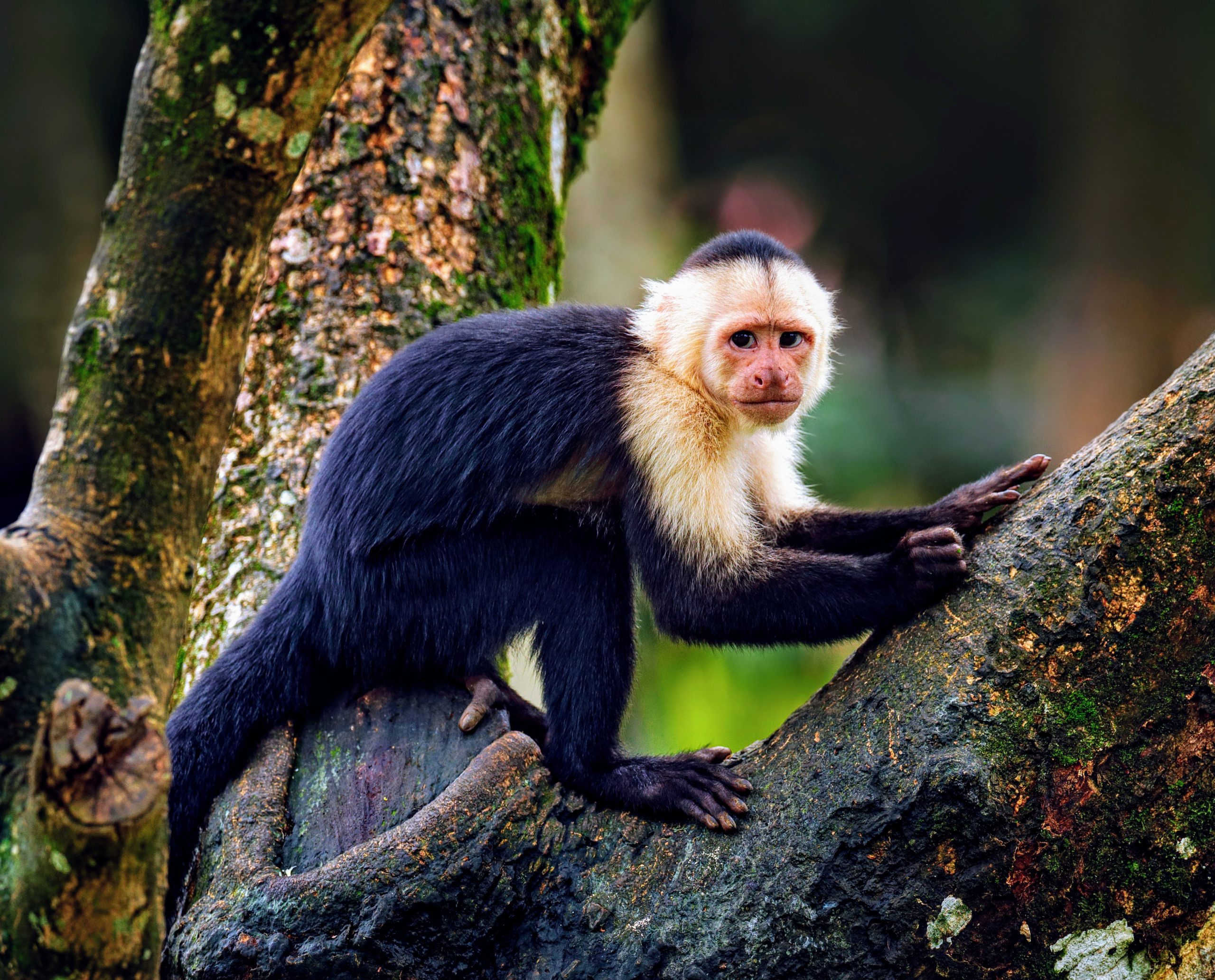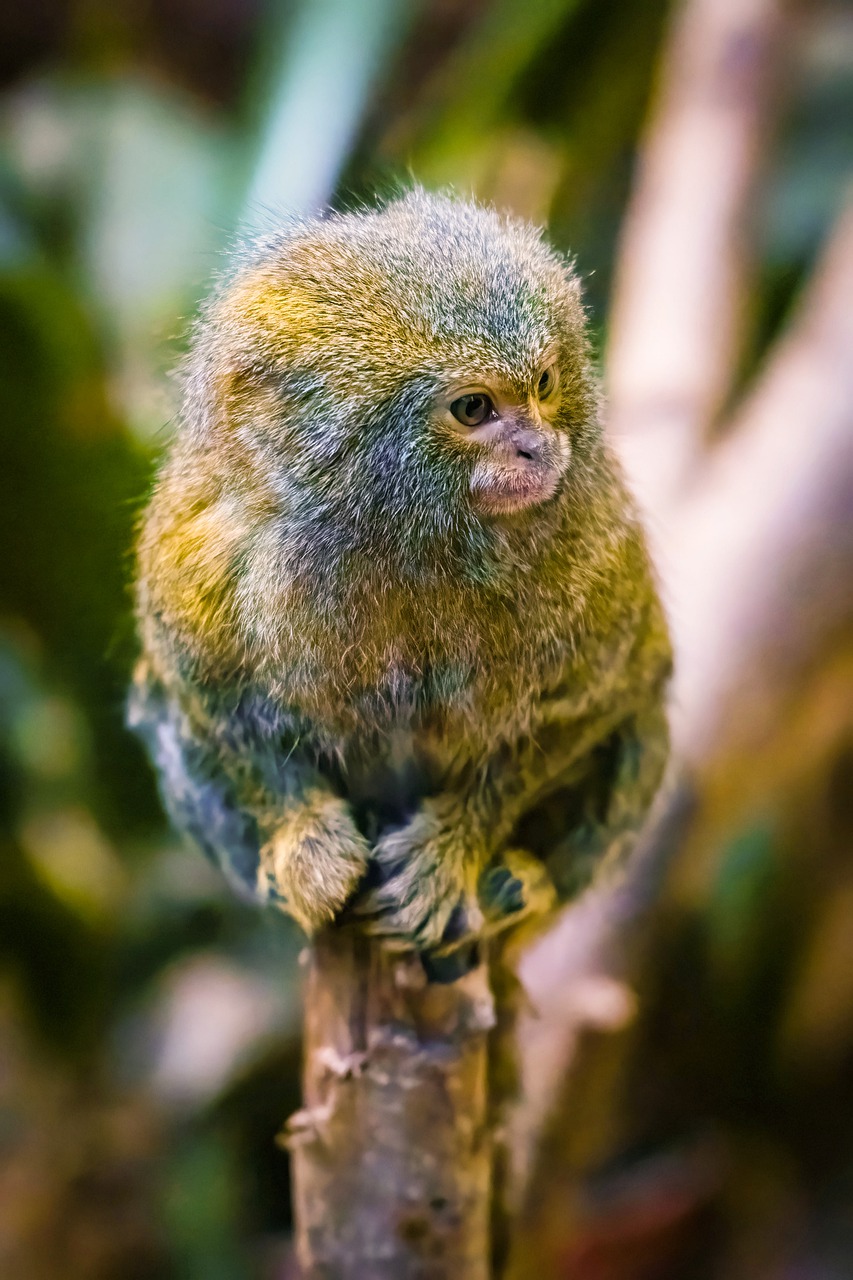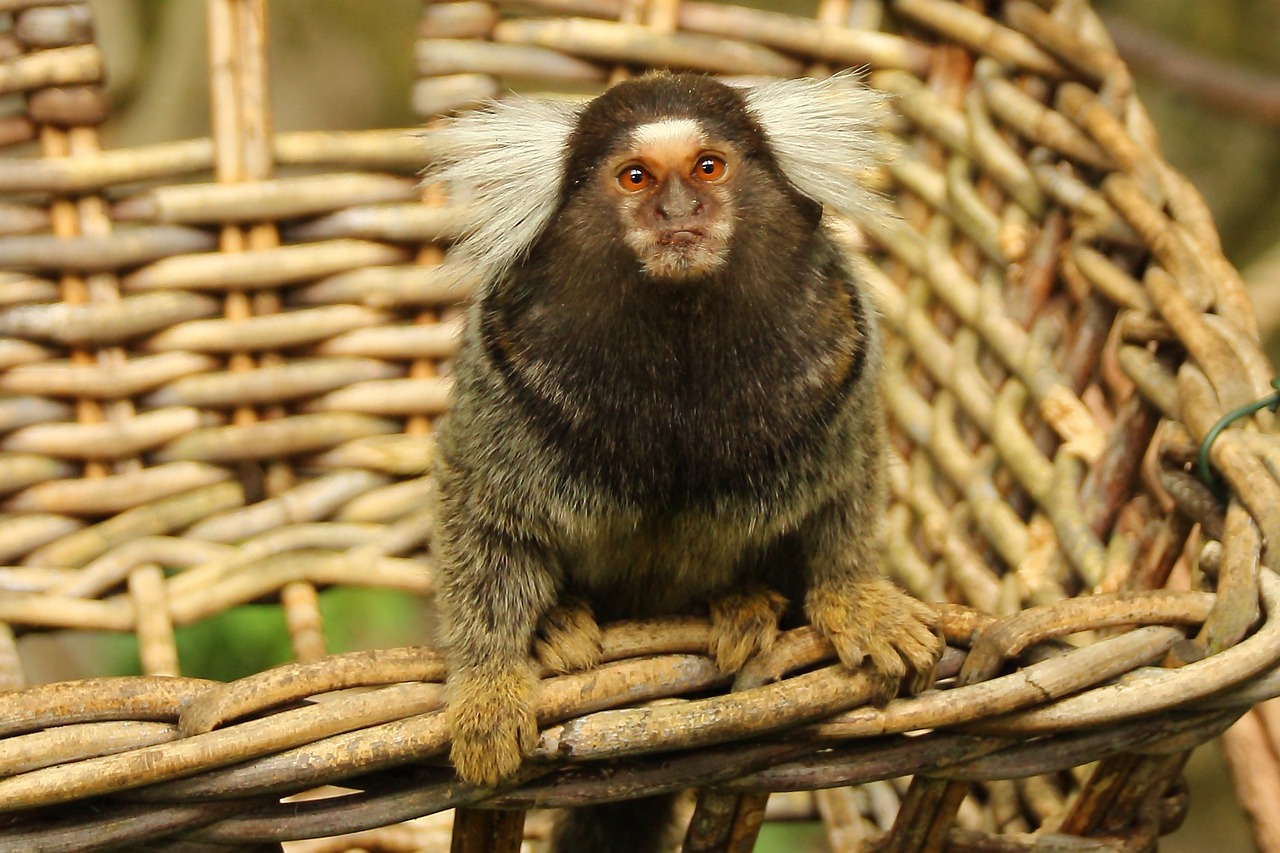Currently, the private ownership of non-human primates, including monkeys, is not regulated under Michigan State law. However, it is important to note that each municipality in the Great Lakes State has its own ordinance which may prohibit the ownership of primates, despite it being legal under state law. An illustrative example occurred in 2016 when a woman in Bay City, MI, was informed that she could not bring her beloved pet squirrel monkey into the city due to the City's ban on such ownership.
Presently, the Bay City Code strictly prohibits the keeping of any animal or reptile within the city, with the exception of dogs, cats, or other commonly kept household pets. Consequently, it is crucial to thoroughly research your local animal ordinance before making the decision to welcome a pet monkey into your Michigan home. Nonetheless, let us now explore the top three monkey species commonly kept as pets in Michigan.
1. Capuchin monkeys
The most popular monkey species kept as a pet in Michigan is the Capuchin monkey, which is deemed to be the most intelligent New World monkey. These highly intelligent primates, scientifically known as Cebus capucinus, are attracting many people's interest as pets. However, it is essential to consider several factors before adopting a Capuchin monkey.
Firstly, their lifespan can be quite extensive, with individuals living up to 45 years in captivity. This longevity implies a significant commitment and responsibility for their well-being throughout their lives. Additionally, owning a Capuchin monkey requires substantial knowledge and experience since they demand complex care and enrichment activities to ensure their physical and mental health.
Furthermore, local legal regulations must be taken into account when acquiring these primates as pets in Michigan. It is also important to bear in mind the financial implications of owning a Capuchin monkey since they often come with high price tags due to their rarity and specialized needs. Ultimately, thorough research and consultation with experts are crucial when considering adopting a Capuchin monkey as a pet in Michigan.
2. Pygmy marmoset monkeys
The Pygmy marmoset monkey (Cebuella pygmaea) is the smallest monkey species in the world, native to rainforests of South America. With an average lifespan of 12 in captivity, these tiny primates require specialized care due to their sensitive nature and specific dietary needs consisting of a mix of fruits, nectar, insects, and tree sap.
While there may be curiosity about keeping them as pets, it is vital to highlight that Pygmy marmosets are highly social creatures who live in multifamily groups in the wild, making individual pet ownership challenging for their mental well-being. Additionally, they demand a significant amount of attention and time from their owners.
In Michigan, owning exotic animals such as the Pygmy marmoset can be subject to local regulations and permits. Moreover, acquiring these primates can result in substantial financial investment ranging from $6,000 to $10,000 inclusive of enclosure setup costs and availing professional expertise for proper care. As a potential owner, you need to educate yourself thoroughly on ethical considerations and legal obligations before considering housing a Pygmy marmoset monkey as a pet in Michigan.
3. Common marmoset monkeys
The Common marmoset monkey, also known as Callithrix jacchus, is a small New World primate commonly found in the eastern rainforests of Brazil. With an average lifespan of 12 to 16 years in captivity, these monkeys require proper care and attention from experienced owners. Although they may seem cute and tempting as pets, it is essential to note that keeping them requires dedication, specialized knowledge, and commitment due to their intricate social structure and specific dietary needs.
Furthermore, it is important to consider that the ownership of non-human primates as pets is regulated by each municipality in Michigan. Therefore, before contemplating bringing a Common marmoset monkey into your home, extensive research should be conducted to ensure compliance with legal requirements and determine whether you have the capability to provide the necessary environment for their physical and psychological well-being.
Additionally, purchasing these monkeys can entail considerable costs ranging from $1,500 to $5,000 depending on various factors such as age, gender, genetics, and source of acquisition.
Are there any resources available for prospective monkey owners in Michigan?
Yes, there are resources available to help prospective monkey owners navigate the legal requirements and responsible ownership guidelines in Michigan. Local authorities and animal welfare organizations can provide valuable information, support, and guidance in understanding the laws, obtaining permits, and ensuring the proper care of monkeys.





